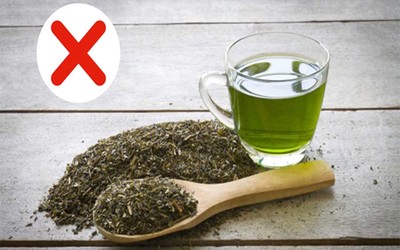Green tea contains an ocean full of benefits for your skin, hair, mind, heart, brain and your entire body. But there is a downside!
[the_ad id=”13371″]
Green tea contains caffeine and if consumed in excess, it can do more harm than good.
Let’s understand how and under what conditions green tea can adversely affect our health.
- Anemia
Green tea reduces the absorption of iron from food and can worsen your anemia.
- Pregnancy & Breastfeeding
Green tea contains caffeine, catechins, and tannic acids that increase pregnancy risks. Caffeine present in green tea can be passed in the breast milk and can affect your infant. Do not drink more than 2 cups of green tea if you are pregnant or breastfeeding.
- Diarrhea
Green tea contains caffeine and when taken in large amounts, can worsen diarrhea. It causes the colon muscles to contract and then relax, resulting in an increased need to move your bowels.
- Diabetes
The caffeine in green tea interferes with your blood sugar level. If you have diabetes and consume green tea, it is important to monitor your blood sugar level.
- High Blood Pressure
If you have high blood pressure, the caffeine in green tea may cause a spike in your blood pressure.
- Bleeding Disorders
Caffeine in green tea might increase the risk of bleeding. Don’t drink green tea if you have a bleeding disorder.
- Heart Conditions
Green tea can cause heartburn and irregular heartbeat due to its caffeine content.
- Osteoporosis
Green tea can increase the amount of calcium that is flushed out in urine, leading to declining in bone health and osteoporosis, especially in those who are already predisposed to bone-related diseases.
- Anxiety
Excess caffeine intake can cause nervousness, anxiety, sleep problems and jitters.
Drinking green tea has many health benefits if consumed in moderation. However, if side effects show up, consult a doctor immediately.
Source:

